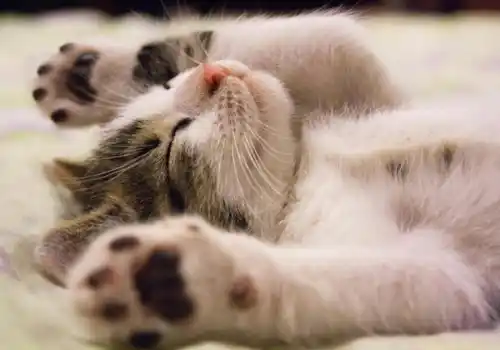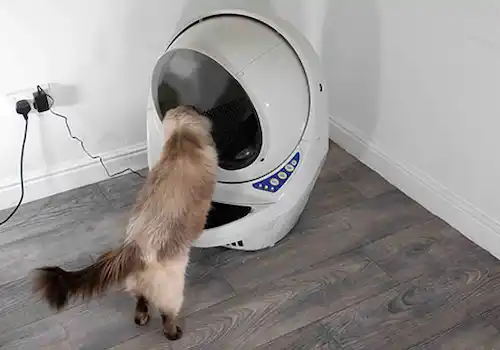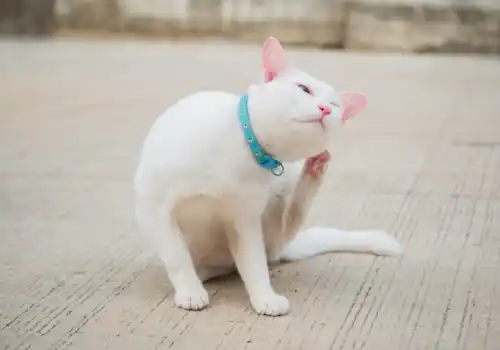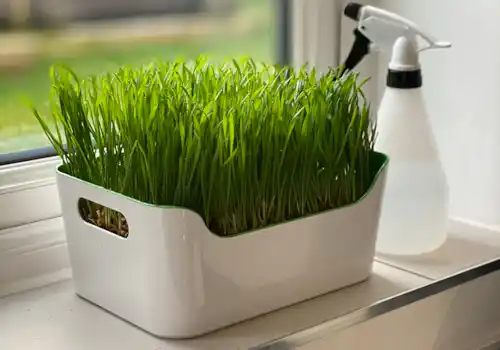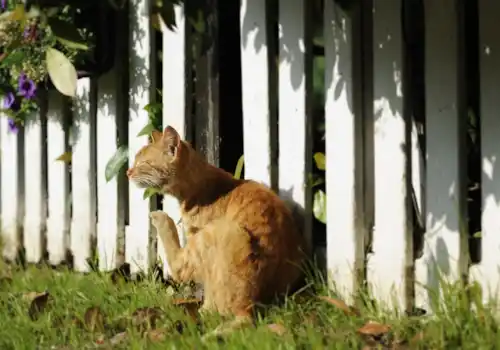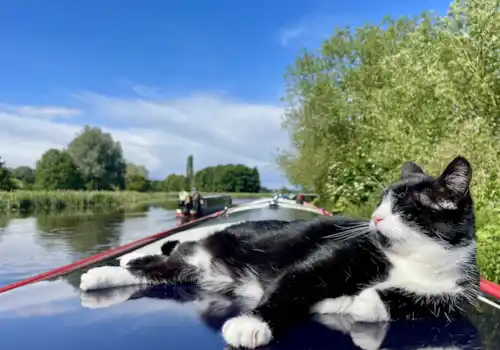Are you thinking about getting a new cat after losing one? It can sometimes feel wrong after losing another, but is it possible to work through the grief and learn to love another cat?
Getting a new cat can sometimes feel wrong after losing another. Is it possible to work through the grief and learn to love again?
As cat owners, words cannot describe how distressing it is when a beloved cat passes away. Although grief is a completely natural reaction to loss, sometimes the pain can make us fearful of ever loving a cat again. The heartache can seem so overwhelming and the devotion to our cat's memory so strong, that people are sometimes faced with feelings of fear or disloyalty if they consider getting a new cat.
In order to understand where these conflicting feelings may be coming from, it is important to accept how intense grief can be. When a cat passes away, owners can go through the same grieving process as they would for any other family member. Only pet-related grief is still not widely recognised in society, and we are often expected to 'just get on with it'.
Sadder still, owners are sometimes faced with having to make a decision about when it is best to let their cats go, and that in itself can feel an unfair responsibility. Similarly, death can occur suddenly as a result of tragic circumstances. Is it therefore any wonder that we may have trouble processing our bereavement?
How can I deal with the grief of losing my cat?
Cathy Payne, from Devon, lost her six-year-old tortie, Rosie, in a road accident. "I remember the last time I saw her," explains Cathy. "I was playing with my son when she trotted by and miaowed to go out. I opened the window as I had many times before; she sat there for a moment looking back at us, and then hopped off as usual to have an adventure.
"The next morning, the phone rang and I could hear my husband asking 'Is she dead?' My blood ran cold as I rushed downstairs. He said simply, 'It's Rosie, she's been hit by a car'. The following days were devastating. Not only did I have to carry on with work, but I had to explain to my three-year-old daughter why Mummy and Daddy were crying, and why Rosie wasn't coming home for her breakfast."
A logical reaction to such pain is to avoid whatever caused this hurt in the first place, and sadly for Cathy, and for many other cat lovers, the idea of going through the grief again is just too much, even if years of love came before.
Three years after losing Rosie, Cathy said: "Three years on, and we are still sad about losing Rosie in such a devastating way, and we will never get another cat. If the same thing happened again, I wouldn't forgive myself."
Interestingly, Cathy then went on to have two Labradors. "I don't worry about the dogs as they are walked on the lead, but I dread the day they will naturally die. Losing Rosie has reminded us to treasure every day with them."
But what if we desperately miss having a cat in our lives, yet feel as if we are disloyal if we look for another one?
Don't feel guilty if you do get another cat
Daniel Ransom, from London, recalls this dilemma when he and his girlfriend suddenly lost their eight-year-old cat, Ragamuffin, to cancer.
"Ragamuffin's death shocked us and we were left completely heartbroken," Daniel explains. "Our home felt empty without a cat, but, whenever we considered getting a new cat, we felt as if we were replacing her.
"We eventually went to our local rehoming shelter and asked to see the cat who had been there the longest. By bringing home a really deserving cat, we somehow felt that we could justify the decision. We came home with Toby, a black and white moggy, who had been waiting for a home for over a year."
Of course, this suggests that it is not just us who may miss out on cat ownership as a consequence of grief, but also cats themselves. Celia Hammond, founder of the Celia Hammond Animal Trust which rescues and rehomes thousands of cats every year, believes that pet bereavement can negatively affect the rate of rehoming.
"We experience grief-associated guilt from prospective owners all the time. Someone may come in with good intentions of homing a cat, but it can quickly become too much and they'll end up in tears over how they can't take another one," explains Celia. "We could fill our shelters six times over with rescued cats. We're so overcrowded; we simply cannot keep up with the slow rate of rehoming."
Perhaps our focus, therefore, should be on using our ingrained love for cats for further good, and view owning a new cat as an opportunity to provide a loving home. Celia agrees, and explains how guilt, although natural, is not necessary: "Never feel guilty. I always say that owning again is the biggest compliment that you could ever pay your cat."
Choosing another cat
Yet, what sort of cat should we bring home? Should we try to find one that reminds us of our old friend?
"Go for one completely different," Celia recommends. "Otherwise, the similarity will never match up."
Daniel also agreed with this sentiment: "I'd be lying if I said that it didn't feel strange when we first brought Toby home. He's so different to Ragamuffin that he almost seemed like an intruder! But, two months on, we now utterly love Toby for the individual cat that he is."
So how has Daniel learnt to love a new cat and preserve Ragamuffin's memory? "Toby has become so warm and affectionate, and it may sound silly, but he just seems really grateful to have a home! I think that Ragamuffin would approve."
Words by Claire Newton-Ransom.

Is your cat also grieving?
Does your cat seem down after the death of another pet? He could also be grieving their loss.
It is often mistakenly assumed that because of cats' more independent personalities and solitary nature they do not experience grief following the loss of other cats in the household. Suddenly becoming the only cat will involve an adjustment process for your cat. The grief process is exactly this - an adjustment to loss. Your cat may be still be searching for his feline friend and need more time to adjust to him not being around.
Firstly, seeking veterinary advice is important to make sure that there is no underlying physiological reason for any change in your cat’s personality. It may be helpful to minimise change in your cat's environment as much as possible for the short-term to reduce stress and anxiety.
If your cat’s appetite has lessened, try warming his food or adding some non-salty gravy, although it's wise to avoid radical changes in diet. Encourage play as much as possible, and try to spend more time grooming and stroking him.
Getting another feline companion straight away isn’t advised, as your cat is in a transitional state of flux and needs, for now, needs to have some sense of continuity. However, with the passage of time you and he may be ready to integrate a new feline family member.
Advice given by pet bereavement counsellor Sue Dawson.

